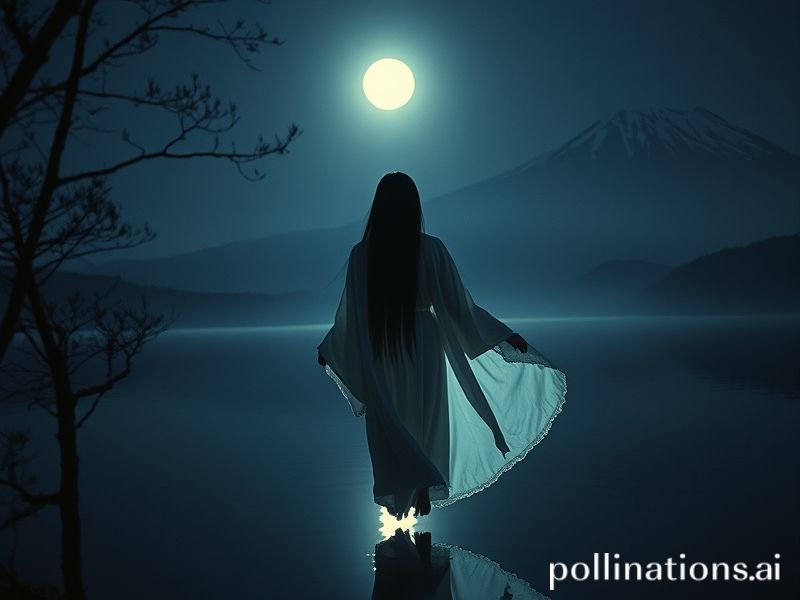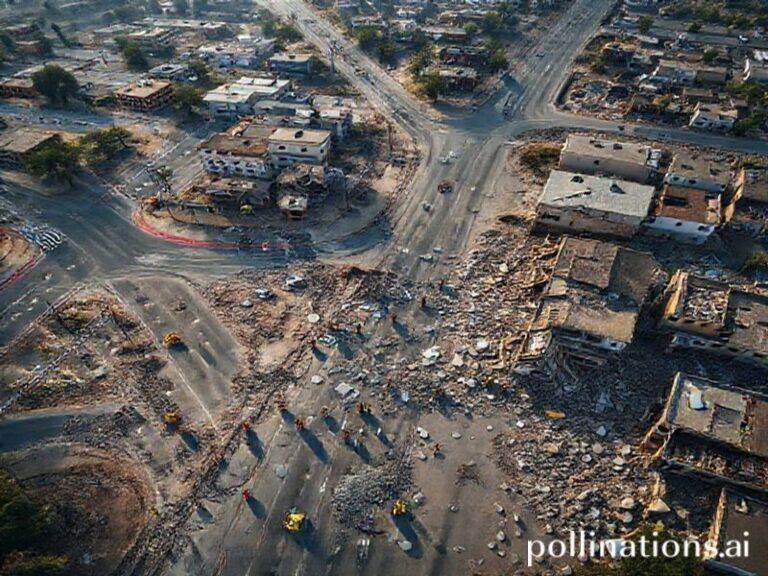Ghost of Yotei: How a Japanese Snowflake Became the World’s Most Dangerous Derivative
Ghost of Yotei: The Specter Haunting Every Boardroom from Tokyo to Timbuktu
By Our Far-Too-Frequent-Flyer Correspondent
Tokyo—In the smoky backroom of a Shibuya izakaya last Friday, three salarymen toasted the quietest apocalypse in modern finance. Their clink of lowball glasses barely rose above the J-Pop B-side warbling from a 1990s-era karaoke machine, yet the gesture was heard—if not literally, then spiritually—by analysts nursing ulcers in London, pension managers chain-smoking on balconies in São Paulo, and crypto bros checking charts on the toilet in Austin. The subject of their morbid celebration: “Ghost of Yotei,” the latest synthetic-credit boogeyman to slip past border control without so much as a temperature check.
Officially, Ghost of Yotei is the tongue-in-cheek nickname for a bundle of Japanese regional-bank loans collateralized by the future snowpack of Mt. Yotei—yes, the dormant volcano in Hokkaido that looks suspiciously like Fuji’s stunt double. A Singaporean quant, bored senseless during a layover at Changi, figured out how to securitize the probability that the mountain’s snowmelt will repay irrigation bonds sold to Malaysian durian farmers. The resulting derivative now roams the world faster than a passport forged in Bangkok, re-hypothecated through shell companies in the Caymans, Dublin, and (why not?) Delaware. If that sounds insane, congratulations: you still possess a soul.
Global implications arrived within days. European insurers—who never met an opaque risk they couldn’t misprice—started using Ghost of Yotei to juice their Solvency II capital ratios. The Bank for International Settlements issued a 212-page report that could be summarized as “We’re mildly concerned, but the font is too small for anyone important to read.” Meanwhile, a TikTok influencer in Lagos stitched a 15-second clip explaining the trade, captioned “Snow in Japan = Money in My Wallet,” and promptly launched a pyramid scheme that already counts three central-bank governors’ nephews among its victims.
The broader significance, if one insists on being grown-up about it, is that Ghost of Yotei is merely the latest iteration of humanity’s proud tradition of turning absolutely anything—tulips, subprime mortgages, carbon credits, bored apes—into a casino chip. The difference this time is climate change, which has transformed once-predictable snowfall into the meteorological equivalent of a drunk day-trader. One warm Hokkaido winter and the whole structure melts faster than trust in a Zoom background. In other words, the trade is a leveraged short on Earth’s thermostat, and Earth doesn’t hedge.
Naturally, regulators have responded with the urgency of a sloth on edibles. Japan’s Financial Services Agency issued a “deeply regrettable” statement, which roughly translates to “We’ll look into it once the sake wears off.” The SEC is debating whether snow counts as a commodity or a security, a distinction that will be settled sometime after the next presidential election, or the next GameStop, whichever comes first. The only grown-up in the room appears to be the European Central Bank, which quietly banned its staff from holding positions in anything ending in “-otei,” prompting at least one junior economist to update his CV.
Ordinary citizens, bless their algorithm-addled hearts, have greeted the Ghost like yet another season of a Netflix show they swear they’ll stop watching: morbid curiosity mixed with the certainty that cancellation is only a scandal away. On Reddit’s r/WallStreetBets, one user posted “YOLO’d my rent into Yotei calls,” accompanied by a GIF of Godzilla skiing. The post received 42,000 upvotes and, presumably, one angry landlord.
In the end, the Ghost of Yotei teaches us nothing we didn’t already pretend to learn in 2008, 1997, 1929, and that unfortunate Thursday in 1637 when tulips hit peak tulip. It is a reminder that globalization’s greatest export is no longer cars or semiconductors but the capacity to convert existential dread into an interest-bearing asset. Somewhere, a bond trader is already pitching the sequel: “Ghost of Kilimanjaro,” long the glacier, short the elephants. And somewhere else—perhaps on a Hokkaido slope where the snow still falls, for now—a lone snowboarder carves a line down Mt. Yotei, blissfully unaware she is riding the powdery collateral of the entire late-capitalist experiment. The mountain, for its part, remains dormant. The same cannot be said for the rest of us.







